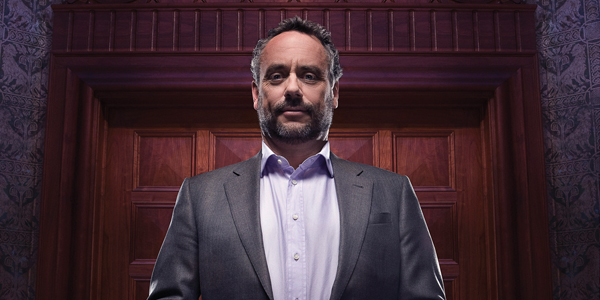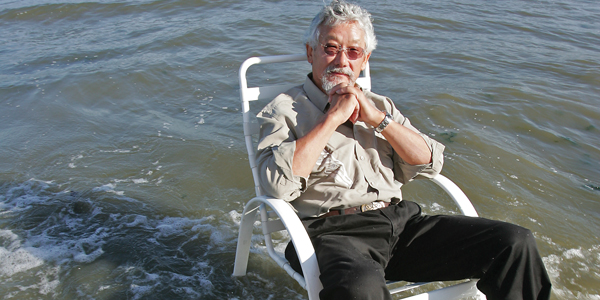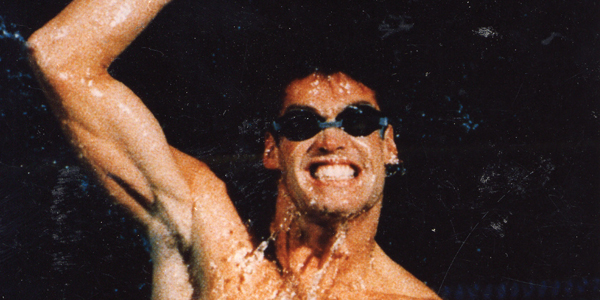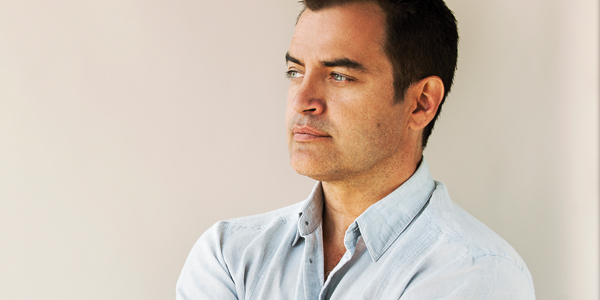Author and advocate of financial literacy Sharon Lechter explains how passion and talent alone aren’t enough for success
Sharon Lechter is the founder of Pay Your Family First, a financial education organization, and YOUTHpreneur, an organization that teaches young people essential entrepreneurial skills.
In 2008 Sharon was appointed to the first President’s Advisory Council on Financial Literacy. The council served both President Bush and President Obama advising them on the need for financial literacy education. A year later, she was appointed to the National CPA Financial Literacy Commission as a national spokesperson.
Sharon is an entrepreneur, author, philanthropist, educator, international speaker, licensed CPA and mother. She has been a pioneer in developing new technologies, programs and products to bring education into children’s lives in ways that are innovative, challenging and fun, and remains committed to education – particularly financial literacy. In 1987, she joined forces with the inventor of the first electronic “talking book.” She has also produced and distributed financial education books, games and other experiential learning products.
In cooperation with the Women’s Presidents Organization, Sharon has held events across the country to teach young girls financial lessons through interactive games. In 2009, this event launched her new financial literacy board game “Thrive Time for Teens”.
Sharon has authored, Think and Grow Rich – Three Feet From Gold in cooperation with the Napoleon Hill Foundation and Greg Reid, which was released in October 2009, and has been a BusinessWeek and Wall Street Journal bestseller. Sharon’s most recent work includes updating the manuscript for the book, Outwitting the Devil by Napoleon Hill. She is the co-author of the international bestselling book, Rich Dad Poor Dad and the Rich Dad series of books. During her 10 years with the Rich Dad Company, it has produced more than 20 books, board games, websites, CDs, audio cassettes and seminars. Rich Dad Poor Dad was on The New York Times Best Sellers List for more than six and a half years and is available in over 50 languages.
In 2009, Sharon received the Humanitarian Award from the Caring Institute and has been awarded a 2012 Positively Powerful Women award for Philanthropic Leadership.
Sharon, thank you for making the time to talk with me. You are a living example of achieving personal and professional dreams, and seem to have a constant flow of good fortune in your life. I’d like your view on that – and creating success. What does true success mean to you?
I think it started back when I was a child. My father used to ask me, “Have you added value to someone’s life today?” when he was tucking me into bed. We could get ourselves and the world in a better place if we could focus on giving instead of taking. I’ve been blessed with an incredible family but we all have setbacks and things we persevere through so it’s important to always look forward and not look back. My definition of success has nothing to do with money. It’s about how you feel about yourself when you look in the mirror and it has nothing to do with your physical reflection. Are you comfortable in your own skin?
Love that! Your character, your true integrity and self-respect – you can’t outrun yourself.
That’s right. My greatest mentor was my father. He had a third-grade education and went on to run the engineering school for the navy. He was exceptionally self-taught and was an entrepreneur through and through. And I grew up in that environment. At the time, I didn’t realize it wasn’t normal. I figured everybody did that kind of thing. It was the concept that author Robert Kiyosaki and I wrote about, in the book, Rich Dad Poor Dad. I lived with my father – understanding the power of being in control of your own life and understanding the power of not blaming anyone else.
Accountability and personal ownership?
Yes. All of my challenges have helped me to grow and become a better person. Back in the mid ’70s, I was in public accounting and I remember a client enticed me to leave and go to a new company he was invested in. At the ripe old age of 26, I felt I had gotten all I needed from public accounting, so I thought, “Why not?” and those two words have really helped to shape the path of my career. So many want to find their “why,” and what happens is that you stay where you are until you figure out why.
Instead I say, ask yourself “Why not?” because that gets you moving and allows you to take the road less travelled.
Obviously, if it’s illegal, then that’s a good reason not to do it, but if you can’t answer the question, then “why not” allows you to experience new things in life. So I left and went with him, and it was a colossal business mistake. Scared me to death. I thought I was going to lose my CPA licence because I found all kinds of problems in the company, but while I was there, I met my husband and we’re now on 32 years of marriage. So, yes, a gift.
How lovely. Meant to be.
Napoleon Hill said it best, “Out of every adversity, every failure, every heartache carries with it the seed on an equal or greater benefit.”
How has passion played a role in your decisions?
In my book, Three Feet From Gold, we actually created a success formula that starts with your passion and it was through the process of writing that book and even after we published it, that I realized so many of us are used to hearing through seminars and books: “Do what you love and love what you do.” But passion can also come from something that makes you angry. It was in 1992, that I really dedicated the rest of my professional career to financial literacy and financial education. I wanted to help people who really wanted to make a difference in their lives. I wanted to provide them with the tools they needed to succeed. So I think that’s important because today my passion is as strong as it was back then but my passion came from frustration and anger over the lack of financial education in our school system. So we talk about finding the “fit” – the fit sometimes is not a comfortable one but it’s a mission you have to take, to make a change in the world.
With the principles of success in the book, Think and Grow Rich, do you believe someone who lacks drive and ambition can still benefit and apply those principles and get the same kind of results?
That’s a pretty big question. My answer to the first part is “yes”; anyone can apply them, but the question is will they have enough drive to apply them? In answer to the last part of your question, I don’t believe true success – again my definition is not just financial – will be achieved unless you’ve worked hard to achieve it.
The book, Outwitting the Devil was intended to be the sequel to, Think and Grow Rich (a bestselling book released in 1937). Napoleon Hill wrote it in the 1930s. Tell me the story behind it and how you became involved?
The Napoleon Hill Foundation had reached out to me to become involved with my book, Three Feet From Gold. So I had known Don Green and Bob Johnson of the foundation for several years, and the month we were releasing, Three Feet From Gold, Don called me and said, “Sharon, we’ve just been given this manuscript that has been hidden for 75 years and we’re not sure what to do with it. Will you look at it?” I said, of course, and when I got it and read the title, I thought, “Oh my goodness, this is a hot potato,” and then I read it and a tremendous sense of calm came over me. I can say it’s the most impactful book that I’ve ever read. I think it’s so vitally important and needed in today’s society.
We live in a world of negativity. We’re surrounded by it – we can’t get away from it. And I had the opportunity to talk to Don about it, the story behind it and how Napoleon Hill spent his life work creating the principles of, Think and Grow Rich.
Over 25 years of his life, he was quite frustrated because he said that even though people know what they’re supposed to do to become successful, they still don’t do it – they lack the motivation.
There are self-limiting beliefs that hold people back. So in 1938, the year after he wrote, Outwitting the Devil, which was intended to be the sequel to, Think and Grow Rich, he reveals his own life history of his own failures – success followed by failure. He shares his own internal struggles about wrestling with these principles of success that he had developed from having spent years interviewing people, and he wrote it as a parable where he interrogates the devil about fear and negativity. It’s an exceptionally revealing book and I was just thrilled and honoured to have the opportunity to work with it.
So with such an impactful bestseller by Hill decades earlier, how did you tackle the work in front of you?
I knew I didn’t want to change his words but I felt it was very important to draw the comparisons between when he wrote it in 1938 and now. I actually sat down and said, “Can people really relate to this now?” In 1938, there was high unemployment – we have unemployment now, and in 1938, there was fear that the world was ending – of course, we’re talking about that now. In 1938, the economy was in the toilet – and we’re dealing with the same thing now. He takes on politics, religion, education, and everything he talks about in each of those areas is as applicable today as it was back then. He talks about the need for teaching religion through faith not through fear. He talks about the need for experiential learning, which is my hot spot; he talks about the need to become critical problem solvers as opposed to using memorization tools. So all of these tools were spot on and as powerful today as they would have been in 1938.
When you reflect on your life, and the lessons you’ve learned, can you share a pivotal moment or a great lesson that has transformed you or profoundly changed the way you live or think?
The greatest gift I’ve had through my business career is understanding that the greatest success comes with others by your side and it’s built on a team effort. You need to understand your strengths and weaknesses and not be afraid to ask for help in the areas in which you’re weak, which is something I still struggle with to this day. But the truth is that business is a team sport – it’s something you do together.
You’ve accomplished a lot in your life, and I’m wondering if the influence of watching your father’s uncommon limitless mindset allowed you to manage and control fear better than most?
Fear is an ever-present part of my life. Many people say courage is the absence of fear but I don’t agree with that. If you’re fearless, you’re mindless. Courage is acting in spite of fear. In fact, there’s a quote that is very impactful for me – the definition of the words “to worry” is to pray for what you do not want. Like my mother, I’m a champion worrier so that quote was really helpful for me – and it was dead on. If you start concentrating on what you don’t want to happen, guess what, it happens.
Fear and worry are a part of life. They can paralyze you or motivate you.
For me, Outwitting the Devil helped me to find the things that I’ve done correctly and the things I’ve done not so correctly. The times when I’ve allowed fear to cripple me and hold me back is when I’ve had a failure and when I’ve acted in spite of fear and allowed that fear to motivate me to take the next step, I succeed. I’m sure we can all think of times when we’ve been worried or concerned about a potential business meeting when we have to confront someone about something. So we replay and worry how it will go over and over. Then you have the meeting and say, “That wasn’t so bad.” And that’s what’s happening to us as a society – people are fearful, they’re hiding in their homes, they’re depressed or angry, they’re concerned and that just adds tension on top of negativity.
The biggest lack of trust is a lack of trust in yourself. People don’t trust themselves to be able to succeed. When you start to do something differently, sometimes the people that you love become fearful because you’re doing something differently and they’re not. A success equation we share in, Three Feet From Gold is: ((P+T) x A x A) + F. Combining your passion with talent (P + T) and multiplying it by both the right association and the right action (A x A), and adding faith (F), will result in success. Faith comes from inside as well as outside and the foundation of faith is trust. Trust in yourself and trust in a greater power.






